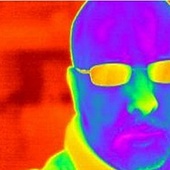With the ever nearing winter months and cool season upon us, I just want to post a reminder to all of us to check the batteries in your CO detectors as well as the smoke detectors. Every heating season brings unfortunate and often tragic news of families or individuals affected by carbon monoxide poisoning. I hate to see anyone become another terrible statistic. Looking for installed carbon monoxide alarms in homes is part of my regular inspection routine. If a solid or fossil fuel burning appliance exists in the home, I always note the existence or lack thereof for CO alarms, and recommend their installation if they are missing.
Some additional tips for the heating season:
- Have your furnace or heating appliance checked, serviced, and cleaned by a qualified professional.
- Keeps the unit maintained
- Provides better efficiency
- Prevents problems at the most inconvenient times
- Can identify potential problems and safety hazards before they cause harm
- Have your fireplace and chimney inspected and cleaned.
- Prevents creosote build up which can cause fires
- Maintains proper venting
- Keeps mechanical components (dampers, fans, etc) in working order
- Can identify potential problems and safety hazards before they cause harm
- Install CO detectors in every living area and bedroom
- Replace CO detectors that are 5 years or older
- Their life expectancy is typically only 5 years
- The manufacture date is typically located on a tag at the back of the unit. (If it's not legible or can't be found, replace it for safe measure anyhow.)
- Effectiveness of detecting low levels of CO are substantially reduced as units age.
- Know the signs of CO poisoning
- Carbon Monoxide is an invisible, odorless, tasteless gas
- CO attaches faster and stays longer in the bloodstream than carbon dioxide and oxygen and reduces the ability of our blood to exchange essential gases needed for life support.
- Typical signs of CO exposure are:
- Headaches
- Nausea
- Vomiting
- Other typical flu-like symptoms
- These signs are typically only noticed when in a CO contaminated area and go away once you leave the home or area.
Often we don't put 2 and 2 together until it's too late. Pay attention and keep your appliances and detectors maintained!
A friend relayed this story of experiencing headaches or feeling ill in the evenings and mornings, but they went away after he got to the office. He took it as the stress of the day just finally catching up with him and simply took pain medication to relieve the symptoms. His furnace quit working and he had the repair man out to fix it. Only then was it discovered that his furnace heat exchanger had numerous holes the size of dimes throughout and was leaking deadly CO into his home! Had the furnace not miraculously quit working, my friend may not have been able to tell me this story!
This story is not unique and occurs all too often.
Keep your families safe this winter!
Comments(2)